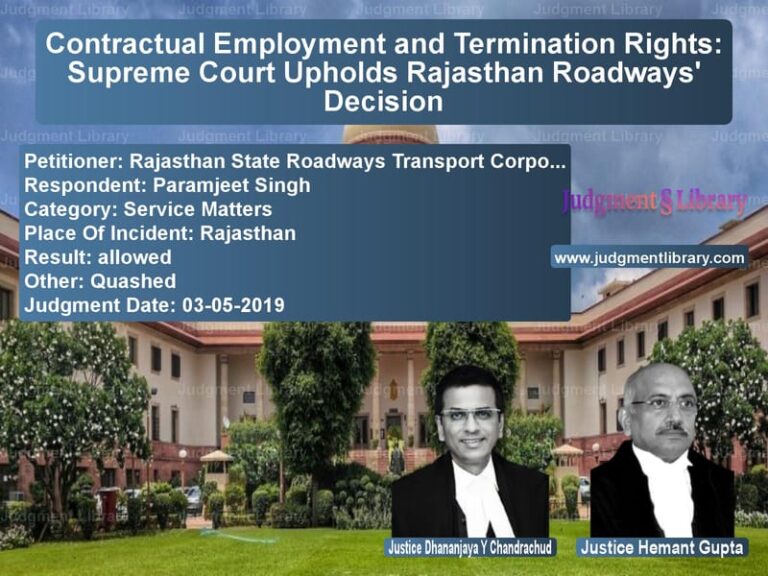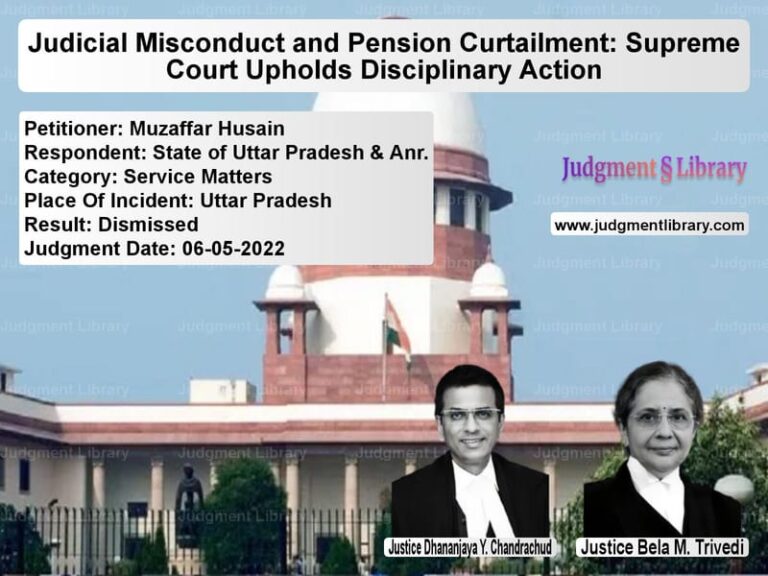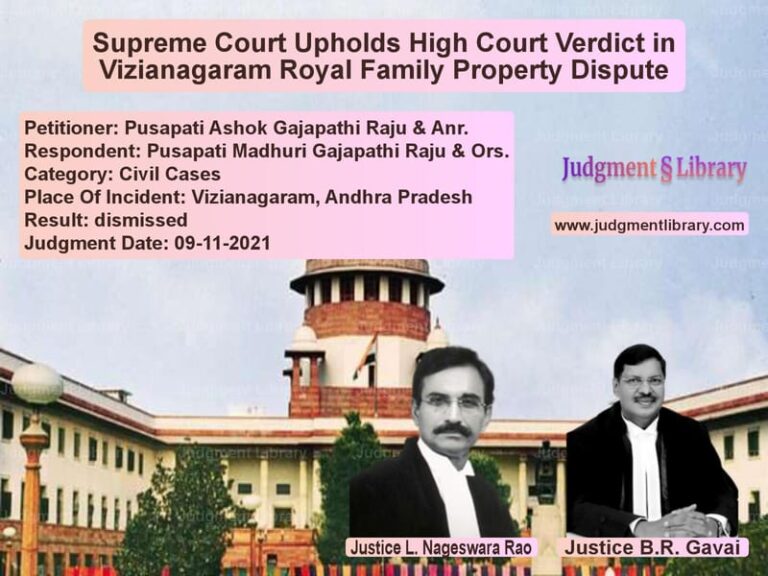Mining Lease Renewal and Captive Plant Requirement: Supreme Court Rules in Favor of Gujarat Government
The case of State of Gujarat & Ors. vs. Nirmalaben S. Mehta & Anr. revolves around the renewal of a mining lease and the conditions imposed by the State Government regarding captive plant requirements. The Supreme Court was called upon to determine whether the Gujarat Government could impose conditions for renewal of mining leases that required lessees to establish industrial units for captive consumption of mined bauxite. The Court ruled in favor of the State Government, setting a precedent for mineral resource regulation.
Background of the Case
In 1964, Kantilal Mohanlal Mehta was granted a 20-year mining lease for bauxite in Gujarat. Over the years, the State Government imposed restrictions on mining activities, requiring lessees to establish industrial units that utilized mined bauxite. These conditions aimed to prevent the indiscriminate export of raw minerals and ensure local value addition.
When the mining lease was due for renewal, the State Government refused to grant permission unless the lessee established a captive plant. The lessee challenged this condition, arguing that such a requirement was not present in the original lease agreement. The case was taken to the Gujarat High Court, which ruled in favor of the lessee, prompting the State to appeal to the Supreme Court.
Key Legal Issues Considered
- Does the State Government have the authority to impose new conditions, such as captive plant requirements, during lease renewal?
- Can the lessee challenge conditions that were introduced post-grant of the original lease?
- Is the restriction on mineral export legally valid?
Arguments from Both Sides
Appellant’s (State of Gujarat) Arguments
The State Government contended:
- “The renewal of a mining lease is equivalent to granting a fresh lease, allowing the government to impose new conditions.”
- “The restriction ensures mineral resources are used in a manner beneficial to the state’s economy.”
- “Unregulated exports of bauxite lead to depletion of resources without contributing to local industry.”
Respondent’s (Nirmalaben S. Mehta) Arguments
The lessee argued:
- “The original lease did not require the establishment of a captive plant, and imposing this condition now is arbitrary.”
- “Bauxite mining and sale had been conducted for decades without such restrictions.”
- “The restriction is not backed by any statutory provision under the Mines and Minerals (Development and Regulation) Act, 1957.”
Supreme Court’s Judgment
The Supreme Court ruled in favor of the State of Gujarat, stating:
- “Renewal of a lease is akin to a fresh grant, and the government is within its rights to impose new conditions.”
- “The requirement for a captive plant is a legitimate policy decision aimed at economic and industrial development.”
- “The State Government’s decision to prevent unrestricted export of bauxite is a reasonable measure to protect local industries.”
Analysis of the Judgment
The Supreme Court considered several key points:
- The Mines and Minerals (Development and Regulation) Act gives the State Government the power to regulate mining leases.
- The lease renewal process is not merely an extension of the old lease but an opportunity for the government to revise terms.
- Allowing unrestricted mineral exports could harm local industries that rely on bauxite for manufacturing.
The Court observed:
“Resource allocation must serve national and regional interests. The State Government’s decision to require captive consumption is a policy decision aimed at sustainable resource management.”
Implications of the Judgment
This ruling has significant implications:
- It establishes that lease renewals can include new conditions that align with state policies.
- It gives state governments greater control over mineral resource management.
- It encourages industries to set up processing units within the state rather than exporting raw materials.
- It provides clarity on the distinction between lease renewal and fresh lease grant.
Conclusion
The Supreme Court’s decision reinforces the authority of state governments to regulate mining activities in a manner that benefits regional economic growth. By upholding the captive plant requirement, the Court has set a precedent that allows states to impose conditions that ensure natural resources contribute to industrial development. This ruling will likely influence future mining lease policies across India.
Don’t miss out on the full details! Download the complete judgment in PDF format below and gain valuable insights instantly!
Download Judgment: State of Gujarat vs Nirmalaben S. Mehta Supreme Court of India Judgment Dated 13-07-2016-1741873223319.pdf
Direct Downlaod Judgment: Direct downlaod this Judgment
See all petitions in Environmental Cases
See all petitions in Judgment by V. Gopala Gowda
See all petitions in Judgment by Arun Mishra
See all petitions in allowed
See all petitions in supreme court of India judgments July 2016
See all petitions in 2016 judgments
See all posts in Environmental Cases Category
See all allowed petitions in Environmental Cases Category
See all Dismissed petitions in Environmental Cases Category
See all partially allowed petitions in Environmental Cases Category







